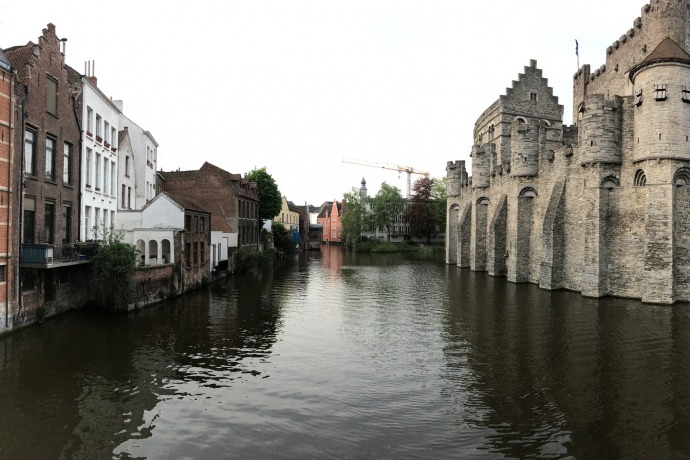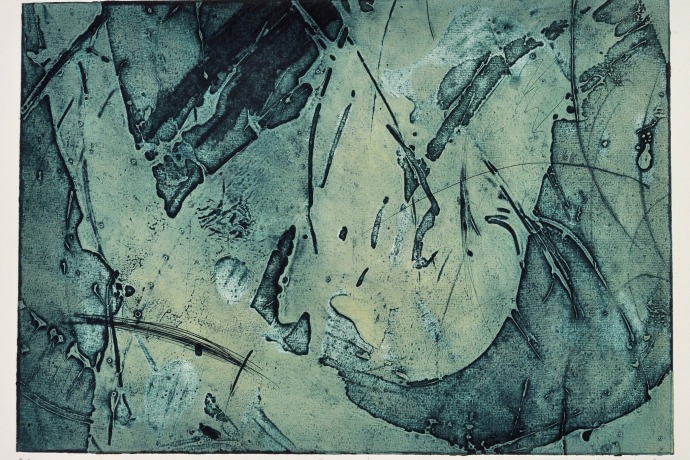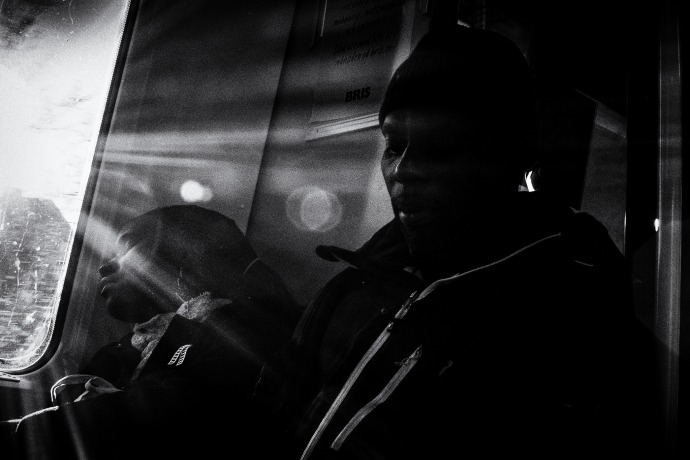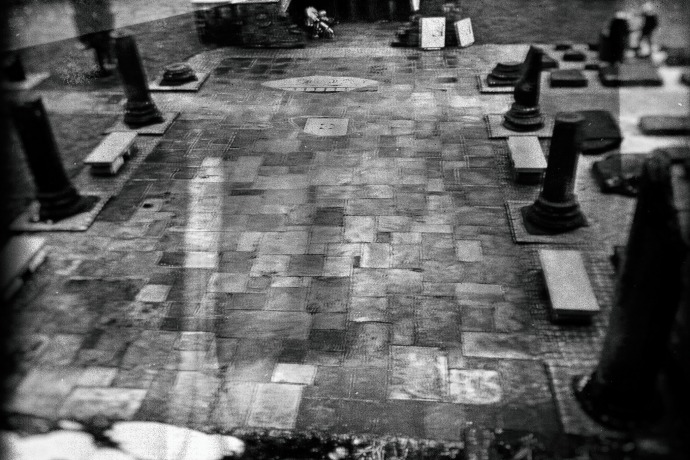Reviews

Review: ‘Passport’ by Richie McCaffery
In his second collection, Passport, Richie McCaffery explores the realities faced by many international couples who live with the uncertainty of Brexit. The poems are taut with frustrated energy as the speaker, who it is clear from the poems is McCaffery himself, seeks a place to call home. McCaffery is British and his wife is from…
Read More
Review: ‘The Girl Who Forgets How To Walk’ by Kate Davis
A personal quest to re-learn how to walk through cherished, northern landscapes introduces a gifted new voice. Gathering fragments from memory, myth, archaeology and geology, Kate Davis’s debut is a nimble exploration of what it means not only to exist, but to persist. The Girl Who Forgets How to Walk feels to me incredibly timely….
Read More
Review: ‘support, support’ by Helen Charman
‘love other women / collaborate only with them’ writes Helen Charman in ‘Instructions for waking up in the morning’, the first poem of support, support (Offord Road Books). The pamphlet takes its title from Denise Riley’s ‘Affections Must Not’, and women’s voices – urgent, ebullient, sardonic – are important throughout. The opening poem acts as an…
Read More
Review: ‘American Sonnets for My Past and Future Assassin’ by Terrance Hayes
Tradition and fashion aside, what Terrance Hayes does with 14 lines, over and over, is what seems necessary: the focusing and finessing of a complex voice – by turns melancholy, crass, urbane, incensed – into a mode that keeps his train-of-thought moving while calling at every stop. Rhythm and momentum in poetry are not the…
Read More
Review: ‘The Republic of Motherhood’ by Liz Berry
The Republic of Motherhood (Chatto and Windus) is a pamphlet of poems about motherhood. And it’s by Liz Berry, which means that it is brilliant. The poems in this pamphlet celebrate and sing every aspect of early motherhood, in all of its tendernesses and darker sufferings. One thing I was struck by was a really effective balance…
Read More
Review: ‘The Singing Glacier’ by Helen Mort
The Singing Glacier (Hercules Editions) by Helen Mort is a brief collection, just six poems slotted into the size of a crack. But the heart-shaking imagery produced in response to this precious and precarious landscape cuts right to the core. The book opens with an orchestra of clattering spoons and chattering customers; percussive rain pounding against…
Read More
Review: ‘The House with Only an Attic and a Basement’ by Kathryn Maris
Many of the poems in The House with Only an Attic and a Basement – poems Maris describes as ‘fictions’ – deal with anxieties around the frictions and fissures in communication between men and women, toxic heterosexual encounters, marriage and infidelity and child-rearing. As with Maris’ previous collection God Loves You (2013), the tensions produced…
Read More
Review: ‘Passivity, Electricity, Acclivity’ by Ella Frears
Ella Frears’ Passivity, Electricity, Acclivity is one fragmented but connected lyric essay. Where the lyric essays that are most frequently referenced (Maggie Nelson’s Bluets, and Claudia Rankine’s Don’t Let Me Be Lonely and Citizen) tend to work in small blocks of prose (or prose-poetry), Frears explodes the lyric essay form, producing the familiar blocks of prose,…
Read More
Review: ‘As Slow As Possible’ by Kit Fan
Kit Fan’s multifarious second collection takes its title from an art installation / piece of music for a church organ by John Cage which began its performance in September 2001 and is scheduled to end, believe it or not, in 2640. It takes on average over a year for a note in Cage’s composition to…
Read More
Review: ‘Isn’t Forever’ by Amy Key
Isn’t Forever (Bloodaxe Books) is a moving and sincere song of mourning; a song which gathers impetus not through showiness but via a slow accrual of raw, untheatrical and many-layered sadnesses. In ‘Lousy with unfuckedness, I dream’, Key writes: …
Read More
Review: ‘Girls Are Coming Out of the Woods’ by Tishani Doshi
Evocations of dogs, rain, love letters, mouldy houses, dead girls, adolescent longing, and an understanding of the body’s mortality inform poet-dancer Tishani Doshi’s Girls Are Coming out of the Woods (Bloodaxe Books), an eerie world of both ruin and tenderness. Conferred the Eric Gregory Award for Poetry and the Forward Prize for Best First Collection…
Read More
Review: ‘Assurances’ by J.O. Morgan
Paying particular attention to the undercurrent of waiting, Assurances (Cape Poetry) navigates an assembly of perspectives and voices affected by the Cold War. Through what he’s gleaned from his father’s role in maintaining the R. A. F. Airborne Nuclear Deterrent at that time, J. O. Morgan’s work seeks to illuminate the shared space and connections…
Read More
Review: ‘Emerald’ by Ruth Padel
The irrepressible spirit of green guides Ruth Padel’s new collection Emerald – in terms of inner and outer growth, mysterious stone tablets and the lucent mineral itself, ‘a seam / of dazzle green’. Emerald is a tender and sustained honouring of the author’s mother Hilda, and the particularities of her dying, in 2017. ‘This is…
Read More
Review: ‘Venus as a Bear’ by Vahni Capildeo
My favourite Capildeo moment (that I’ve come across in print) is in a TLS ‘20 questions’ interview from December of last year when in response to ‘Jacques Derrida or Judith Butler?’, the Douglas Caster Cultural Fellow in Poetry at Leeds University came back with ‘Ursula LeGuin. And David Bowie.’ What appeals to me most in…
Read More
Review: ‘Electric Arches’ by Eve Ewing
In a recent reading, Eve Ewing quoted the Black Liberation Army leader Assata Shakur: “Black Revolutionaries do not drop from the moon. We are created by our conditions.” Ewing agreed with Shakur, but then went on to ask: what if they did drop from the moon? This is the premise of the opening poem of…
Read More
Review: ‘Soho’ by Richard Scott
By turns explicit and playful, elegiac and defiant, Richard Scott’s Soho draws on the fiercer traditions of queer poetry without ultimately depending on those who have gone before. The result is a debut not bound by allegiance to some generalised category but liberated by joy and clear execution. Soho is not necessarily inseparable from London’s…
Read More
Review: ‘The Built Environment’ by Emily Hasler
Epigraphs often function as concise statements of intent, subtly staking out the territory and interests of a collection. Emily Hasler’s The Built Environment (Liverpool University Press) begins with a quote from Nan Shepard’s The Living Mountain acknowledging the wonderful tension between what we know and what we cannot know of the natural world, which for Shepard…
Read More
Review: ‘Who Is Mary Sue?’ by Sophie Collins
I admit, I experienced intense feelings of estrangement and disruptedness during my first reading of Who Is Mary Sue? (Faber). A kind of physical, alienating panic took hold and I struggled with a sense of being constantly dislodged from my usual reading habits and processes. The allusive, allegorical mode is realised through a very quiet approach…
Read More
Review: ‘Pamper Me To Hell & Back’ by Hera Lindsay Bird
The review of Hera Lindsay Bird’s pamphlet Pamper Me To Hell & Back that I’d really like to write, my ideal review, would be a long list of the poems’ flaws and failings, a whole bunch of intellectual and even occasionally personal criticism, and then at the end there’d be a very large, badly lit…
Read More
Review: ‘A Perfect Mirror’ by Sarah Corbett
Exploring themes of location and dislocation, Sarah Corbett’s A Perfect Mirror (Liverpool University Press) finds connections in unlikely spaces, refracting global concerns through local attachments. This short collection finds its genius loci in the landscapes of West Yorkshire and the English Lake District, but its thematic concerns are much broader: seeking to create resonances with both…
Read More
Review: ‘City of Bones: A Testament’ by Kwame Dawes
I read City of Bones (Northwestern University Press), over 200 pages of poems, in one sitting. I was completely held by this heart-full incantation, this uncompromising, philosophical and allusive series of narrative, lyrical and elegiac poems that ventriloquise the ‘multitudes of souls urgently and forcefully singing, shouting, groaning, and dreaming about the African diasporic present and future.’…
Read More
Review: ‘An Ocean of Static’ by J.R. Carpenter
In between the billows of foaming brine, tucked away behind stacks of salt, lurks the pearl of a poetic endeavour completely unlike any other. An Ocean of Static (Penned in the Margins) is the debut collection by digital writer J.R. Carpenter, whose cryptic stream of ever-shifting code spectacularly reinvents the seascape. From the late 15th century…
Read More
Review: ‘The White Book’ by Han Kang (trans. Deborah Smith)
This new book in English from South Korean writer Han Kang may be hard to categorise but it does have a story, which should reassure anyone worried that a text on the colour white (or non-colour white, depending on how you look at it) will be insubstantial. As it turns out, this diary-cum-sketchbook may be…
Read More
Ledbury Emerging Critics: Dzifa Benson reviews ‘Natural Phenomena’ by Meryl Pugh
Meryl Pugh is the award-winning author of two previous pamphlets, Relinquish and The Bridle, but Natural Phenomena (Penned in the Margins), her eagerly anticipated first full poetry collection, opens up new ground in the poet’s oeuvre. In the blurb, Pugh is described as “both futurist and flâneuse.” The future and society’s relationship to consumerism concern…
Read More
Ledbury Emerging Critics: Jennifer Lee Tsai reviews ‘Three Poems’ by Hannah Sullivan
Within the context of contemporary poetry and modern poetic form, how does one begin to describe or characterise ‘free verse’? As an academic, Hannah Sullivan’s critical exploration of this question is evident in her stated research interests. She argues that ‘the prosody of modern poetry is, to a large extent, determined by practices of lexical…
Read More